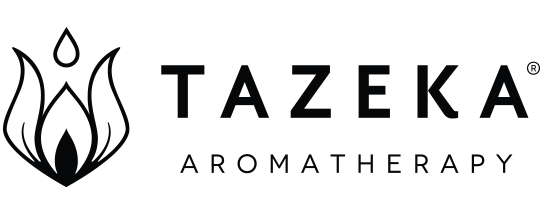
Ever felt odd or anxious about discussing your use of aromatherapy with your allopathic (medical) doctor?
More than one study has found that “about one in three patients use alternative treatments—and of that group, seven out of ten alternative-therapy users do not tell their physicians” (Mel Borins, M.D., “5 Steps in Talking with Patients about Alternative Medicine,” Jan. 14, 2015, http://www.medpagetoday.com/primarycare/alternativemedicine/49527).
This statistic represents a significant problem if you happen to be among those seven tight-lipped patients.
Whether you’re talking to your primary care physician, psychiatrist, anesthetist, or orthopedist, how you approach the topic of using aromatherapy matters. Mostly, it matters because, if your aromatherapy use forms a cornerstone of your own health regimen, you will want your caregiver to know so that he or she has the whole picture. Remember—you and your doctor(s) are supposed to be partners, not adversaries. The point is to keep or make you a healthy, whole person, physically and spiritually. When communication occurs and you and your doctor are on the same page, you are safer and your practitioner has more knowledge.
So what keeps some of us from mentioning our aromatherapy use to our medical caregivers?
You might feel that your physician, nurse practitioner, or physician’s assistant is uninterested in your use of alternative health care generally, and especially aromatherapy specifically. Or you may be worried that your medical or mental-health practitioner will respond negatively or defensively about your use of anything other than allopathic medicine—or simply dismiss it as irrelevant because he or she believes it’s therapeutically useless. Perhaps you’re concerned that your practitioner might tell you to stop using aromatherapy (or another alternative therapy) or else leave the practice entirely.
These concerns make sense. Medicine is by nature a conservative discipline that relies on empirically demonstrated data, and holistic therapies don’t necessarily, by their nature, rely on laboratory or controlled experimental results over a large population. Some medical practitioners are indeed open to combining holistic with allopathic medicine; on the other end of the spectrum, some are not. Some physicians believe anything other than their recommended treatments to be too risky or insufficiently effective.
So—you’re sitting on the exam table, waiting for your caregiver to come in. What to say? Should you mention aromatherapy or not?
First off, if your practitioner asks whether you use alternative or holistic health methods, great! His or her asking suggests that the practitioner is aware of the possibility and quite possibly more educated than other physicians about the topic of holistic health.
Should your practitioner ask about holistic therapy use, your best bet is to be honest and say that yes, you do use aromatherapy. He or she, if trained well, will ask more questions about the particular oils you prefer and your purpose in using them. Do tell your caregiver what you use, and please don’t omit anything. If your caregiver doesn’t ask, speak up!
Also important: telling your practitioner about every symptom you have, even if you feel aromatherapy is treating a symptom adequately.
In order to keep track of your aromatherapy oils, keep a list of your preferred oils and their application methods with you—and while you’re at it, list all the herbal supplements and other holistic treatments you rely on. That will ensure that, if you’re flustered in your caregiver’s office, you won’t have to rely on memory to list off your alternative remedies.

Every good doctor–patient relationship involves partnering together. Your doctor should ask you about your aromatherapy or alternative-therapy use; if he or she doesn’t, it’s up to you to bring the topic up. You and your practitioner should talk about the usefulness of your aromatherapy regimen—and your practitioner should listen. You should be treated with respect, not dismissed, as you discuss the issue of aromatherapy. Then you and your practitioner can collaborate to find the best medical treatments for you, complemented by your aromatherapy use.
While you’re fidgeting in the office, take a good whiff of your favorite oil blend to calm yourself, review your aromatherapy list, and know that you are being proactive about your health by using aromatherapy. The next step is opening up to your doctor! Once the communication pathways are open, you’ll know where you stand and can feel confident that your healthcare and aromatherapy regimen are working in concert.


Comments on this post ( 0 )